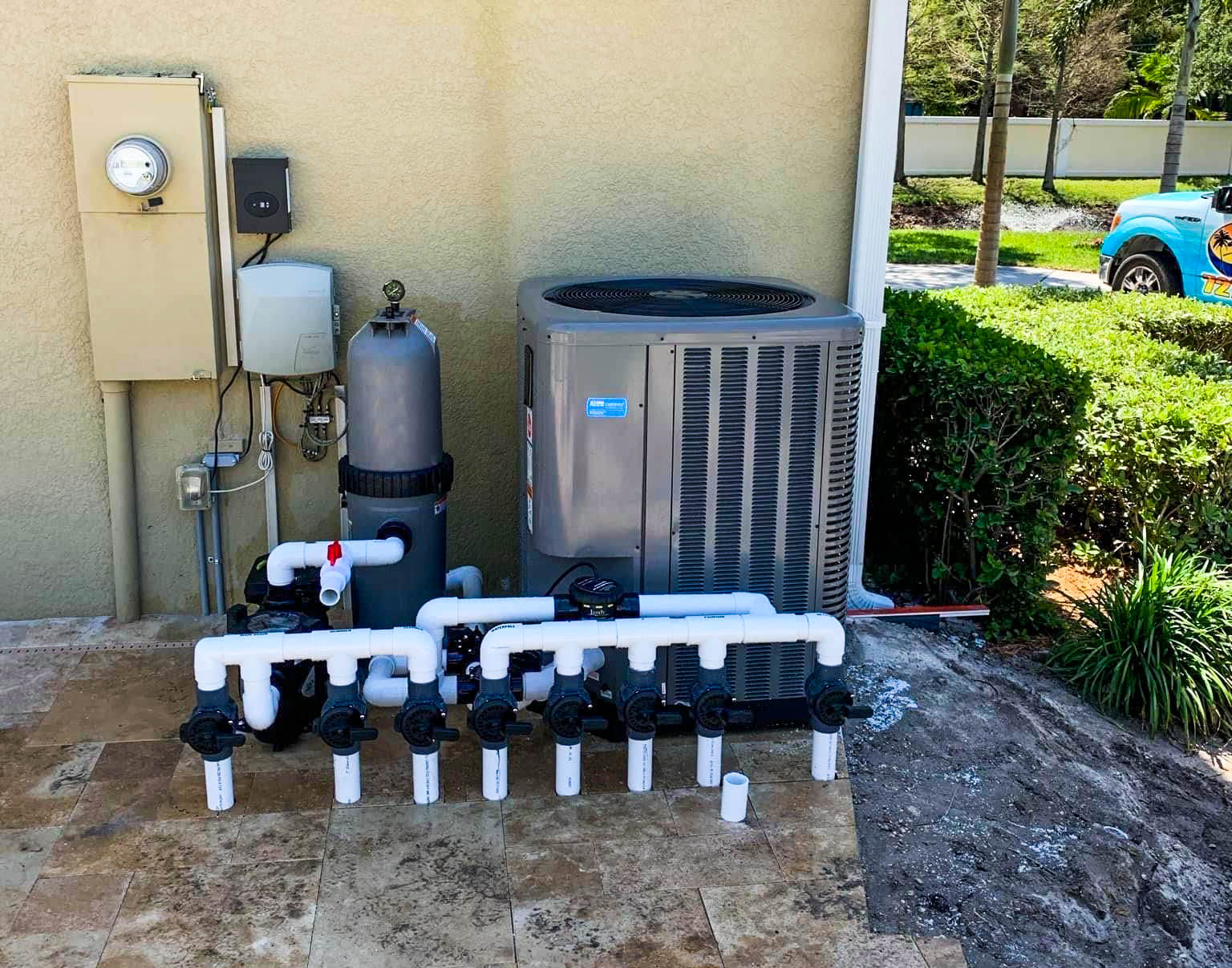
From Solar to Gas: Your Pool Heater Handbook

Imagine the scene: a sun-drenched day, blue skies, and your inground pool glistening invitingly. You’re decked out in your favorite swimsuit, ready to dive into aquatic bliss. But just as your foot touches the water, you recoil. Despite the sunny facade, the water is chillingly cold.
It’s a scenario many pool owners know all too well. But fret not! The solution is a reliable pool heater. But with several types available, how do you choose the right one for your needs? In this in-depth guide, we at PoolForce break down the three most popular types of pool heaters: Solar, Electric, and Gas. We aim to equip you with the knowledge to make an informed decision, focusing primarily on Solar Pool Heaters.
Why Do You Need a Pool Heater?
First things first, do you even need a pool heater? The answer largely depends on your geographical location, swimming habits, and comfort preferences. While those in warmer climates may find a heater optional, anyone residing in colder regions will consider it nearly essential. Beyond climate, a pool heater can extend your swimming season, allowing you more flexibility and enjoyment.
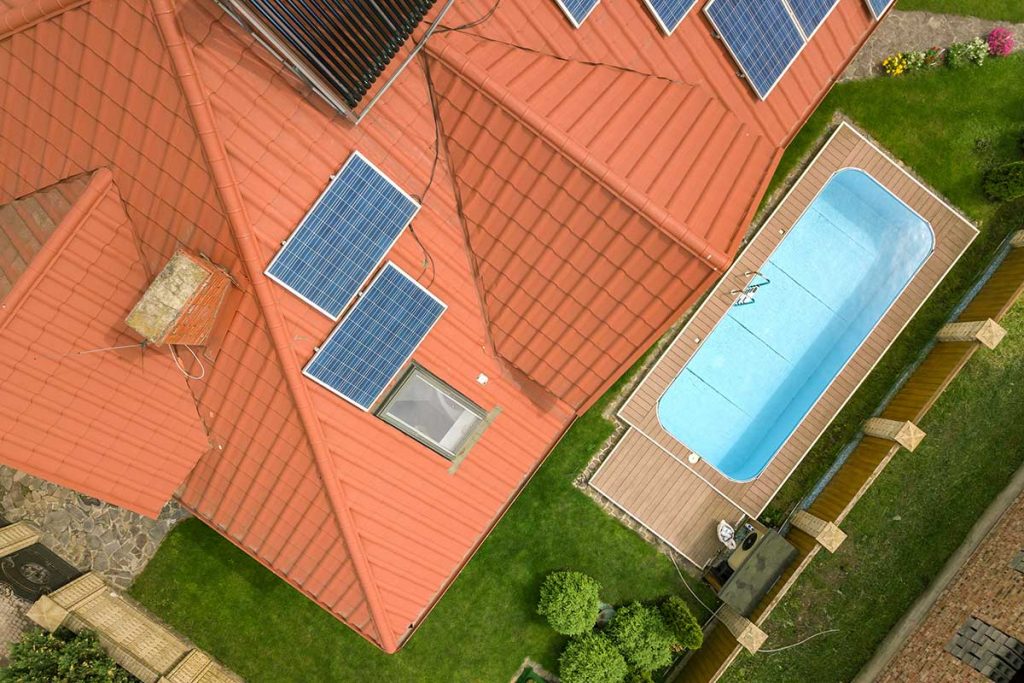
Latest


How Will Artificial Intelligence Help Pool Companies in 2024
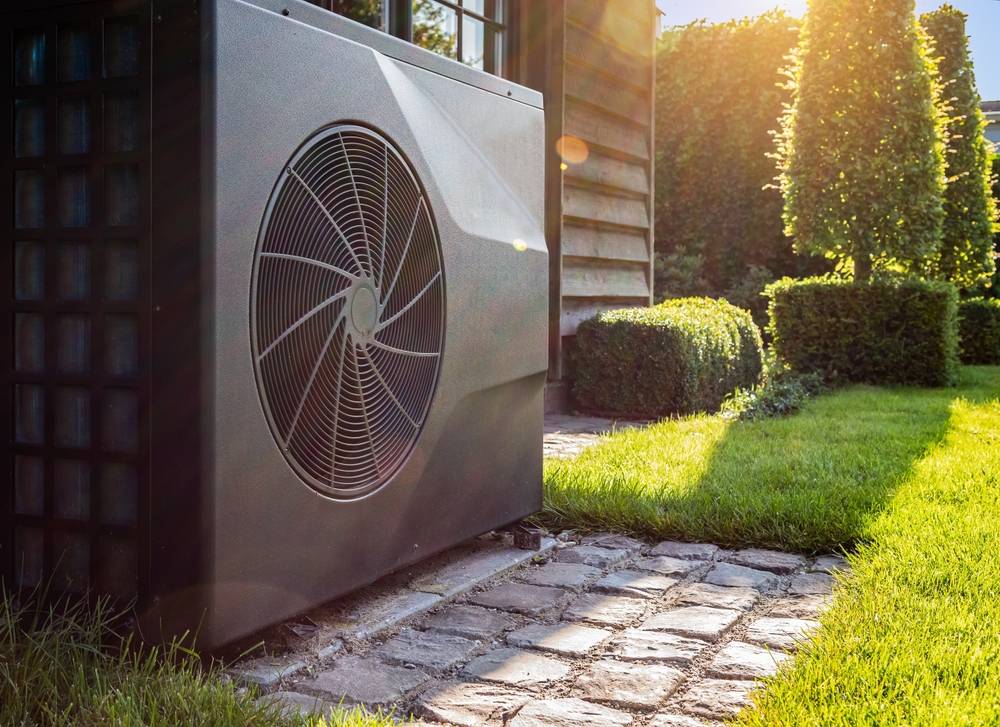
What Factors Determine Pool Heater Costs In 2024
Categories
The Radiant Power of the Sun: Solar Pool Heaters
Solar pool heaters harness the renewable energy of the sun, making them an eco-friendly and increasingly popular choice among environmentally conscious pool owners.
How Does a Solar Pool Heater Work?
A solar pool heater operates using solar panels, usually installed on your roof. Pool water circulates through these panels, which absorb heat from the sun and transfer it to the water. A pump is essential to this process, facilitating the flow of water through the solar heating system.
Solar Heater Requirements
Sunlight: For a solar pool heater to be effective, you’ll need abundant sunshine. If you live in a predominantly cloudy region, this may not be the ideal choice for you.
Space: The solar panels require significant space, often half as much as your pool’s surface area. Make sure to assess your available space before making a decision.
Solar Panels: Ensure that the solar panels are of high quality to maximize energy absorption and efficiency. These panels can be roof-mounted or ground-installed, depending on your specific needs.
Solar Pool Heater Costs: What to Expect?
While solar energy is free, the pump that circulates water through your solar heater isn’t. On average, running the pump can cost between $300 and $950 per year, depending on your location and utility rates.
The upfront costs, including installation, range from $2,500 to $9,000. This can be a significant investment, but remember that solar panels are a long-term solution with minimal operational expenses.
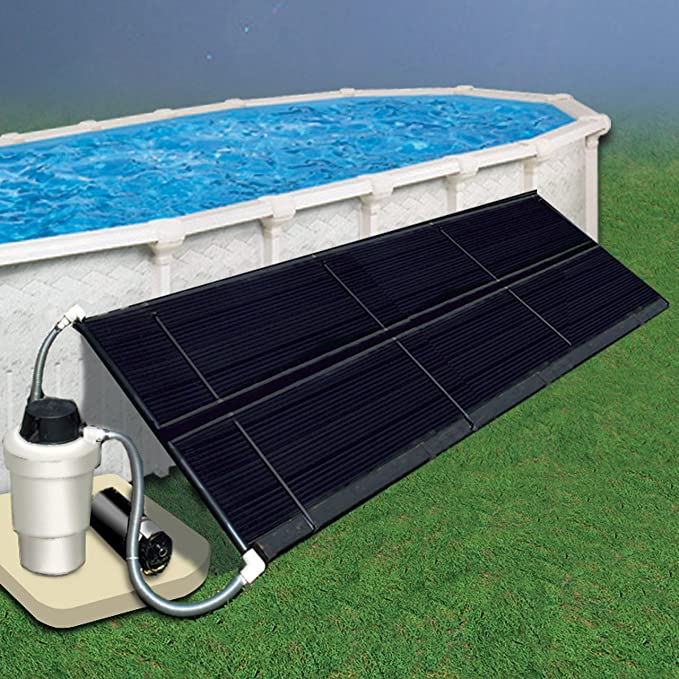
The Bright and Dark Sides: Pros and Cons of Solar Pool Heaters
Choosing a pool heater is not just about the initial cost and installation. It’s a long-term commitment that comes with its own sets of advantages and drawbacks.
Pros of a Solar Pool Heater
- Eco-Friendly: Solar pool heaters have zero carbon emissions, making them the most eco-friendly option available.
- Low Operating Costs: With solar energy being free, the only operational expense is the cost to run the pump.
- Longevity: A well-maintained solar pool heating system can last up to 20 years, offering excellent value for money.
- Extended Swim Season: Depending on your location, a solar pool heater can extend your swimming season by several weeks, sometimes even months.
- Tax Benefits: A Solar pool heater may be eligible for tax credits. However, this varies by location and it’s advisable to check with local authorities.
Cons of Solar Pool Heaters
- High Initial Costs: The installation can be expensive, especially if your roof needs modifications.
- Weather Dependent: The efficiency of a solar pool heater is highly dependent on sunlight and weather conditions.
- Space Requirements: The solar panels require a considerable amount of space, potentially limiting other rooftop uses.
- Slow Heating: Solar pool heaters generally take longer to heat the pool compared to other types.
Solar vs Electric: Introducing Electric Heat Pumps
While solar pool heaters are fantastic for those who prioritize sustainability, they may not be for everyone. Enter Electric Heat Pumps, another popular choice that offers its own unique benefits.
How Do Electric Heat Pumps Work?
Electric Heat Pumps operate on a simple principle: they extract heat from the surrounding air and use it to warm the pool water. Unlike solar heaters, they don’t rely on sunlight, but they do need an ambient temperature of at least 55°F to operate efficiently.
Electric Heat Pump Costs
The upfront cost of an electric heat pump ranges between $2,000 and $7,000, with operational costs averaging between $50 and $100 per month. While the initial investment is similar to that of solar pool heaters, electric heat pumps boast lower monthly operational costs.
Solar vs Electric: A Quick Comparison
- Efficiency: Electric heat pumps are generally more efficient in less sunny conditions compared to solar pool heaters.
- Cost: Both have similar upfront costs, but solar heaters have lower operational expenses in the long run.
- Space: Electric heat pumps don’t require the large space that solar panels do, making them a good option for those with space constraints.
- Weather Dependence: Electric heat pumps can operate in a broader range of weather conditions, offering more consistent performance.
- Eco-Friendliness: While electric heat pumps are more efficient, they are not as environmentally friendly as solar pool heaters.
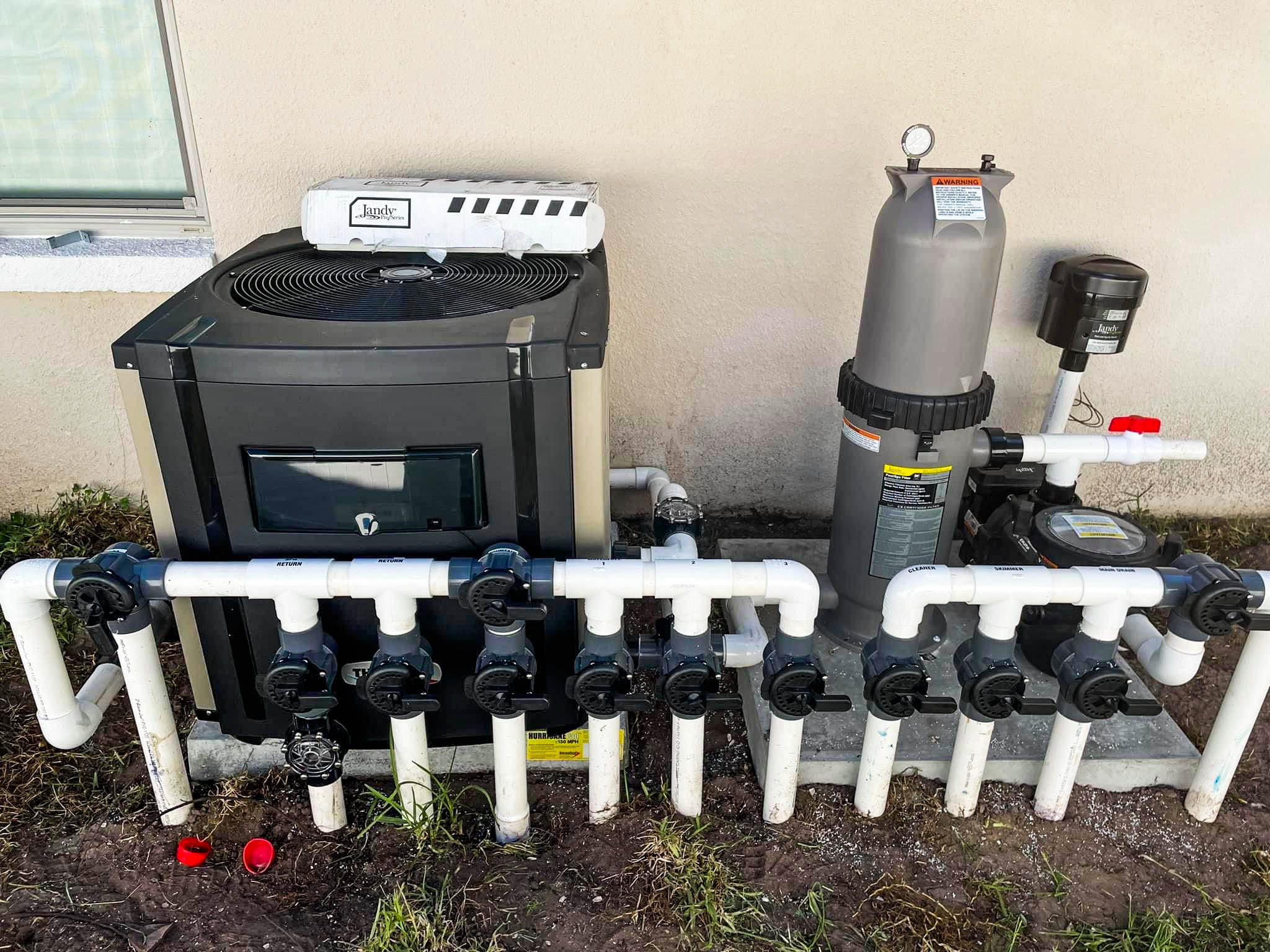
Ignite the Warmth: Gas Pool Heaters
Gas Pool Heaters are the traditional choice and remain popular for their quick heating capabilities. Unlike solar and electric pool heaters options, they do not depend on weather conditions, making them a more reliable, albeit less eco-friendly, option.
How Do Gas Pool Heaters Work?
Gas pool heaters burn natural gas or propane in a combustion chamber. This heats copper coils through which your pool water circulates, warming it before it returns to your pool. In essence, gas heaters offer the luxury of quick and anytime heating.
Gas Pool Heater Costs
The upfront cost of a gas pool heater is relatively low, ranging between $1,500 and $6,000. However, operational costs can be steep, often ranging between $300 and $500 per month, making it the most expensive option for long-term use.
Solar vs Electric vs Gas: The Ultimate Comparison
- Speed of Heating: Gas heaters win hands down, offering quick heating capabilities. Electric heat pumps are slower, and solar heaters are the slowest.
- Operational Cost: Gas heaters are expensive to run, electric heat pumps are moderate, and solar heaters are the most economical.
- Eco-Friendly: Solar heaters are the most eco-friendly, electric heat pumps are somewhat eco-friendly, and gas heaters are the least eco-friendly.
- Weather Dependence: Gas heaters are the least weather-dependent, electric heat pumps require a minimum ambient temperature, and solar heaters require sunny conditions.
- Installation Costs: Gas heaters are generally cheaper to install than solar and electric heaters, but their operational costs are higher.
- Longevity: Solar heaters generally last the longest, followed by electric heat pumps. Gas heaters usually have the shortest lifespan.
Factors to Consider When Choosing
- Location: If you’re in a sunny area, a solar pool heater might be the most effective and economical choice. For colder climates, a gas heater may be more appropriate.
- Usage: If you’re an occasional swimmer, the quick heating of a gas pool heater could be beneficial. For regular swimmers, the economical operation of a solar heater or electric heat pump might be more practical.
- Budget: If you’re looking for a long-term investment, solar heaters offer excellent value for money despite their high upfront cost.
- Space: If space is a constraint, electric heat pumps are more compact compared to the sprawling solar panels of a solar heating system.
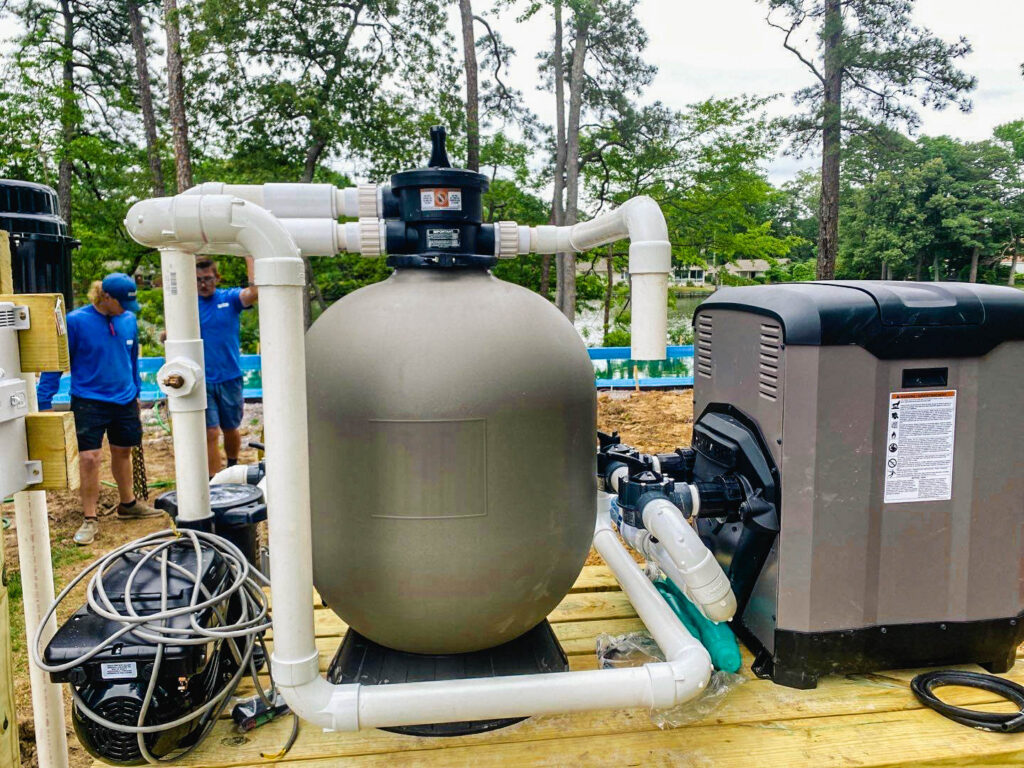
Conclusion: Making the Informed Choice
Choosing a pool heater is a significant decision that affects not just your swimming experience but also your long-term finances and environmental impact. Here’s a quick recap to help you make an informed choice:
- Solar Pool Heaters are best for eco-conscious homeowners living in sunny climates. They offer low operating costs but require a hefty initial investment.
- Electric Heat Pumps are a middle-ground option that balances efficiency with eco-friendliness. They are best suited for moderate climates and offer lower monthly operational costs.
- Gas Pool Heaters provide quick heating and are ideal for colder climates or less frequent swimming. However, they are neither cost-effective nor eco-friendly for long-term use.
At PoolForce, we’re committed to helping you make the most of your pool experience. While we may not sell pool heaters, we believe in empowering our readers with the information they need to make the best choices for their pools. For more details on various pool types, designs, and other accessories, feel free to explore our website or contact us.
Ready to dive deeper? Check out our comprehensive guides on fiberglass pools, pool umbrellas, and automatic pool covers to fully equip your swimming oasis.
Latest

DIY Pool Pump Cover Ideas for 2024

How Will Artificial Intelligence Help Pool Companies in 2024

What Factors Determine Pool Heater Costs In 2024
Categories
YOU'RE NOT IN THIS ALONE
We are with you every splash of the way
Need a pool fix or looking for an upgrade? We’re just one click away to help with all your pool needs.

